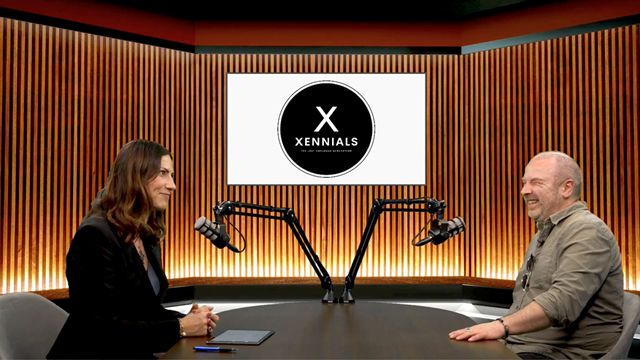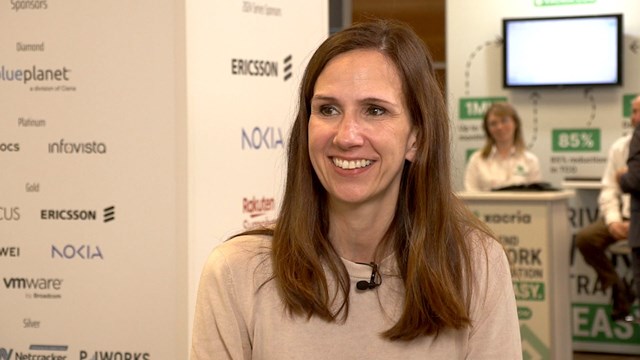
- Vodafone stated in 2020 that it would deploy Open RAN at 2,500 UK sites
- Following a number of trials and pilots, that deployment has now begun
- The Open RAN gear provided by multiple vendors is replacing Huawei technology
- Samsung, Wind River, Intel and Dell are among the vendors providing the Open RAN-compliant technology
- The operator says Open RAN is now outperforming traditional systems across a number of metrics
Having put Open RAN technology through a number of tests, trials and pilot deployments over the past few years, Vodafone has now started to replace legacy Huawei mobile network infrastructure gear with disaggregated, multivendor 4G and 5G solutions at 2,500 sites across Wales and the south-west of England.
And in what will be a fillip to the Open RAN community, Vodafone claims that evidence from its so-called “golden cluster” deployment across 16 sites in the UK seaside towns of Torquay and Exmouth show that Open RAN systems can outperform traditional radio access network (RAN) technology “in call success rates, as well as in download and upload speeds across multiple spectrum frequencies”.
Vodafone initially announced the 2,500-site Open RAN deployment in 2020 following the UK government’s ruling that UK operators should rid themselves of high-risk vendor (HRV) mobile network technology – mainly Huawei gear – by 2027, the date by which the operator said the process to replace the Chinese vendor’s equipment with Open RAN systems would be completed – see Vodafone commits to Open RAN rollout in UK, plans R&D labs across Europe.
Now the rollout has begun in the county of Devon, using: 4G and 5G radios (including 64T64R massive MIMO units) as well as virtual RAN software from Samsung Networks; Wind River’s Studio cloud network platform; PowerEdge servers from Dell Technologies; general purpose processors (GPUs), acceleration hardware and network interface cards from Intel; and multiple pre-deployment and drive test systems from Keysight Technologies. Capgemini has been Vodafone’s main Open RAN test partner in its labs.
And with the apparent success of the golden cluster and a number of rural location deployments, Vodafone says it is “now able to commence the removal of HRV technology from the network without compromising customer experience.”
But the process has taken longer than expected – Vodafone initially said the replacement of Huawei sites with Open RAN technology would start in 2022 – and there’s still a long way to go before Open RAN systems achieve total parity with traditional systems, with total cost of ownership (TCO) and energy efficiency being the main key performance indicators (KPIs) that other network operators will want to know about, in addition to connection speeds and call connection rates.
But Vodafone is one of Open RAN’s major supporters, and is one of five major European operators trying to encourage the development of a regional Open RAN ecosystem, so it’s keen to point out the potential additional advantages that such deployments have to offer, such as the ability to introduce Open RAN-compliant specialist technology that can’t be integrated with traditional single-vendor systems. “Not only can Open RAN lower the barrier for entry for alternative suppliers to add greater resilience to [the] Vodafone supply chain, but this additional competition will also act as a catalyst for innovation, allowing for suppliers to specialise in niche areas as opposed to providing ‘turnkey’ solutions,” noted the operator in its official announcement.
Andrea Dona, chief network officer at Vodafone UK, added: “OpenRAN is a central pillar to our network strategy for numerous reasons. Most importantly, we see this as a vehicle for transformation, opening doors that would otherwise have been closed.”
Samsung Networks, which has positioned itself as one of the companies most likely to benefit from mass market Open RAN investments, is also (naturally) enthusiastic about the development. “Now we are witnessing how innovative technologies like Open RAN and vRAN can further bolster 5G capabilities, creating new paths and possibilities for network evolution,” noted Junehee Lee, head of global sales and marketing at the networks business of Samsung Electronics. “Following this historic milestone in Europe, we will continue working together with Vodafone to take their Open RAN networks to new heights,” he gushed in this announcement.
Vodafone is certainly the most enthusiastic about Open RAN among the UK’s mobile operators. BT sees only niche opportunities in the near term, while Virgin Media O2 has announced only a limited initial rollout and seems to have little appetite for much more at the current time – see Virgin Media O2 picks Mavenir for Open RAN rollout.
If Vodafone Group can complete its planned merger of Vodafone UK with Three, it’ll be interesting to see whether this broadens the potential for Open RAN deployments across the country.
The news comes just as the Open RAN sector is in the doldrums. The multiple major greenfield operator deployments that some vendors had predicted have so far failed to materialise and, as a result, research house Dell’Oro Group noted just this week that telco spending on Open RAN systems dipped during the second quarter of this year.
Will Vodafone’s continued enthusiasm and positive action spur other operators to take the plunge and commit to commercial Open RAN deployments? The jury’s out…
- Ray Le Maistre, Editorial Director, TelecomTV
Email Newsletters
Sign up to receive TelecomTV's top news and videos, plus exclusive subscriber-only content direct to your inbox.




